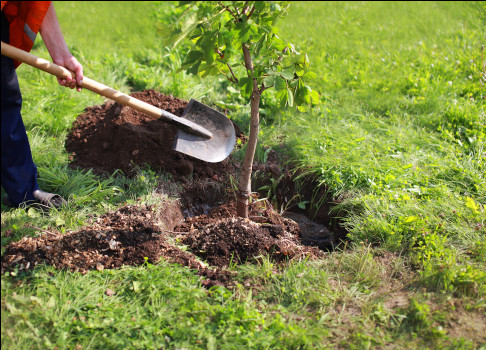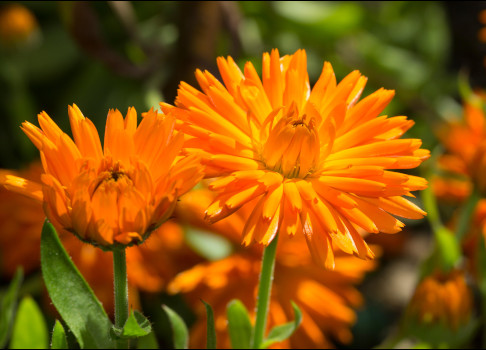Top 10 tips to create an eco-friendly garden
Top 10 tips to create an eco-friendly garden

Here at Hayloft we have a real passion for the environment and are always searching for more ways that we can be green. From the packaging that we use, to having solar panels installed this year, we are continually making efforts to be kinder to mother nature.
As part of our efforts to be eco-friendly, we are encouraging gardeners to go green too. Keep reading for our top 10 tips for how you can easily do this.
10. Mulch, mulch, mulch
Mulch is a truly wonderful thing and can be a gardener’s best friend. It keeps the moisture in the soil, decreasing the need for watering, is a natural weed suppressant and keeps your plants protected from colder weather. It’s also so easy to make your own mulch so you don’t even need to buy it. Just gather up fallen leaves in the autumn, add some moisture, place in a bin liner with some holes poked through and leave for up to 2 years.


9. Grow your own
Growing your own fruits and vegetables is becoming increasingly popular. It’s a heck of a lot cheaper than buying from the supermarket and reduces your carbon footprint. We also think it tastes a hundred times better when you know you’ve grown it yourself.
8. Plant trees
We all know by now how important trees are for our environment. They give us oxygen and certain trees also help purify the air, which is particularly important if you live in urban areas. Trees also give other plants in the garden some much needed shade in the hot summer.


7. Go native
Go wild and opt for plants that are native to the UK for your garden. These will not only attract the wildlife and pollinators but because they will be in their natural home, they’re also extremely easy to grow.
6. Use organic and natural alternatives
Ditch the man-made chemicals and go au natural in your garden. There are so many great organic pesticides and herbicides available these days, so there’s no excuse not to use natural alternatives. The great thing about these natural products is that they are much less damaging to the surrounding environment.


5. Encourage wildlife
Our gardens can be a haven for the wildlife surrounding us and we can all do our bit to protect declining species by providing them with food and safe habitats. There’s nothing better than sitting back and watching all the wonderful creatures scurry around in the garden.
4. Make your own compost
Instead of buying compost, why not try making your own? Turn your food waste into a fantastic nutrient-rich mix to help your plants flourish. It’s so easy, will save waste and your plants will love you for it!


3. Conserve water
There are many ways we can cut down on our water usage in the garden. Installing a water butt is a great option and you’ll be amazed at how much water can be saved by using one. You may also wish to cut down on water usage by choosing drought tolerant plants, as these plants will require much less water to grow successfully.
2. Recycle and Reuse
So many things can be reused, recycled and repurposed to use in our garden Rather than buying brand new items try and find other materials that can be used in a different way. Not only is this great for the environment but it’s also bang on trend right now. Try turning old pallets into planters and furniture or old tin buckets into pots.

1. Choose plants that pollinators love

It makes us sad to say that the numbers of our pollinating insects are declining here in the UK which, if we’re not careful, have a seriously negative impact on our environment. A really easy way to help the pollinators out is by planting nectar rich flowers in our gardens. There are plenty of suitable plants but some of our favourites include Monarda, Phlox, Scabious and Digitalis.
